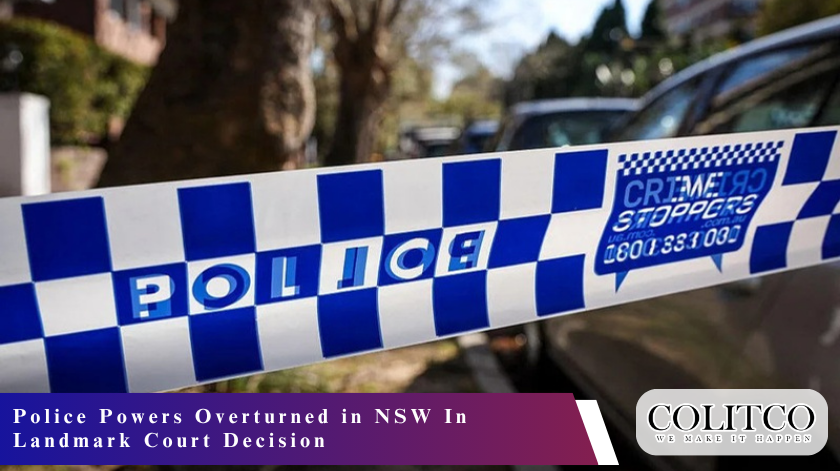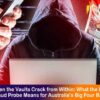The ruling by the NSW Supreme Court ruling has nullified the contentious anti-protest laws, which empowered the police to relocate protesters at places of worship. Apart from being a huge legal victory for civil rights groups, this decision also confirmed that police powers overturned in NSW created a government defeat for the Minns administration.
Why Were These Powers Introduced?
The legislation was passed in February as a measure to deal with the rise in anti-Semitic incidents reported in Sydney and Melbourne. Authorities cited violent threats, graffiti, and arson attacks on protesters at places of worship. The Minns government claimed that the enhanced powers were essential for the protection of worshippers and maintaining public order.
Progressive activists opposed the move, arguing that the legislation was vague and unconstitutional. The laws allowed police to act against anyone staging a protest “near” a place of worship. Among the protesters at places of worship was Josh Lees, a pro-Palestine activist, who challenged the laws in court. He claimed the laws violated freedom of communication and political expression, highlighting why police powers overturned in NSW were critical.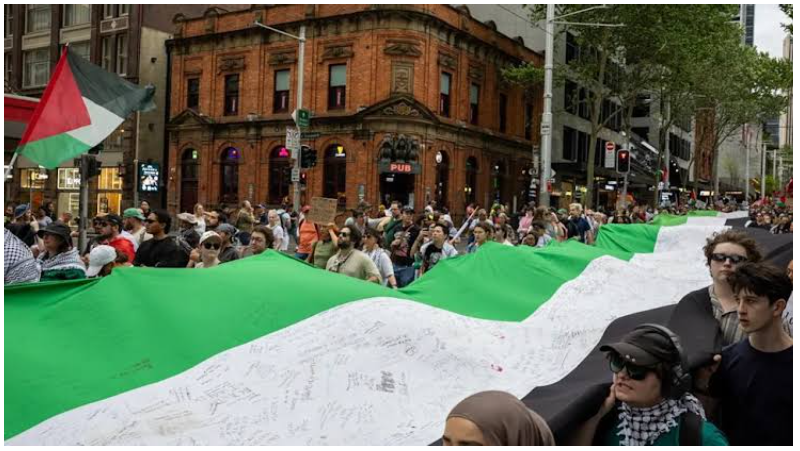
NSW Supreme Court strikes down anti-protest laws, civil rights groups celebrate
What Did The NSW Supreme Court Rule?
Justice Anna Mitchelmore concluded that the legislation improperly limited people’s freedom of communication. She ruled the laws invalid, emphasising the rights of peaceful protesters at places of worship.
NSW Solicitor-General Michael Sexton SC argued the laws were necessary to prevent harassment of worshippers entering or leaving religious sites. Justice Mitchelmore disagreed, stating that the broad scope risked silencing legitimate demonstrations. The NSW Supreme Court ruling also dismissed claims that union rallies or permitted protests could save the law, showing why police powers overturned in NSW were required.
How Do Protesters At Places Of Worship Benefit?
With police powers overturned in NSW, protesters at places of worship now have fewer limitations on their activities. The court’s decision removes the ability of police to unilaterally move peaceful protesters under this law.
Existing public order laws remain in effect. Police can still intervene in cases of violence, obstruction, or property damage. Civil rights activists hailed the ruling as a victory, restoring balance between security and democratic freedoms.
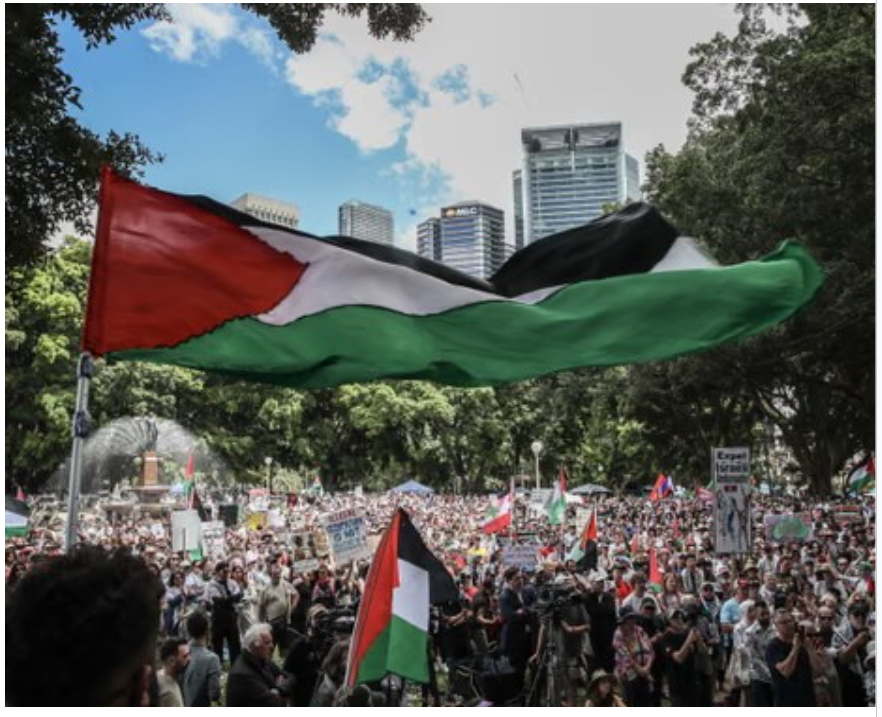
NSW court ruling limits police power over protests near places of worship
Why Did The Laws Face Backlash?
From the very beginning, the anti-protest laws met with resistance from human rights activists, labour unions and jurists. One of the main concerns of the opponents was that the vague expression “near” could allow the police to control whole neighbourhoods.
Even the Premier Chris Minns was said to have been warned about possible troubles during the drafting of the law. Critics mentioned that many areas meant for public use, like the one right outside the Supreme Court building, are located very close to places of worship, such as churches or synagogues. The Labour legislators, however, went ahead anyway with their plan, saying that among their reasons was the fear that such an event would take place again at the Great Synagogue in the heart of Sydney, which had already been the case with a few rallies.
The Attorney-General of New South Wales, Michael Dale, was firm in his stance at that time, maintaining that these powers were not just necessary but also the only way to guarantee the safety of religious practices.
What Happens Next For The Minnesota Government?
The ruling of the New South Wales Supreme Court is a serious legal and political defeat for the government. The latter is now in the position of having to account for its way of dealing with the protection of faith being weighed against the freedom to protest. The officials have not yet given any indication as to whether they will take the ruling to the higher court or rewrite the legislation with more explicit parameters.
Legal scholars are of the opinion that any new law will have to give a much clearer definition of “proximity” and “disruption” in order not to run into any more constitutional difficulties. At the same time, on the part of the civil rights activists, there is a call for the government to conduct a broad consultation before putting forward any new restrictions.
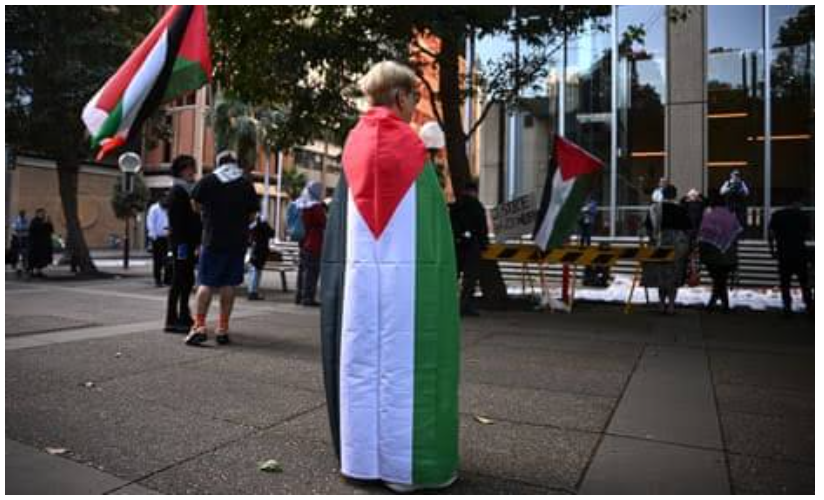
Experts urge clear definitions, public consultation for new NSW protest laws
Could This Set A National Precedent?
The ruling is indeed limited to New South Wales, but it might still play a role in the other places. Laws that are similar in other states can now be examined through the same constitutional lens, so the decision might even emphasise the necessity of proportionality in public expression restriction around sensitive places.
The activists are wishing for the ruling to provide a nationwide free speech protection while, at the same time, allowing for the consideration of worshippers’ safety. On the other hand, the policymakers are still catching up with their hard-truth scenario of balancing rights in a society that is diverse. Police powers overturned in NSW are likely to be cited in future debates nationwide.
Also Read: $70 Million Dormant Opal Cards to Be Claimed by NSW Government
FAQs
Q1: What does the NSW Supreme Court ruling mean for the protesters?
That ruling invalidates the laws that provided police the authority to shift protesters to the vicinity of places of worship, hence bringing back the rights of protest under the general law.
Q2: Will the police still have the power to act against the noisy protests?
Yes. Police have the authority to intervene and quell any violence, obstruction or harassment through public-order laws.
Q3: What led to the passing of such laws?
These laws were legislated as a reaction to the series of anti-Semitic incidents in Sydney and Melbourne that affected places of worship.
Q4: Is the government going to appeal the verdict?
The Minns government has not decided whether to appeal or draft new, narrower legislation that might cause less controversy.
Q5: Will this ruling impact other Australian states?
Not directly, but it might still have an effect on the future court challenges and legislative reviews throughout Australia.

